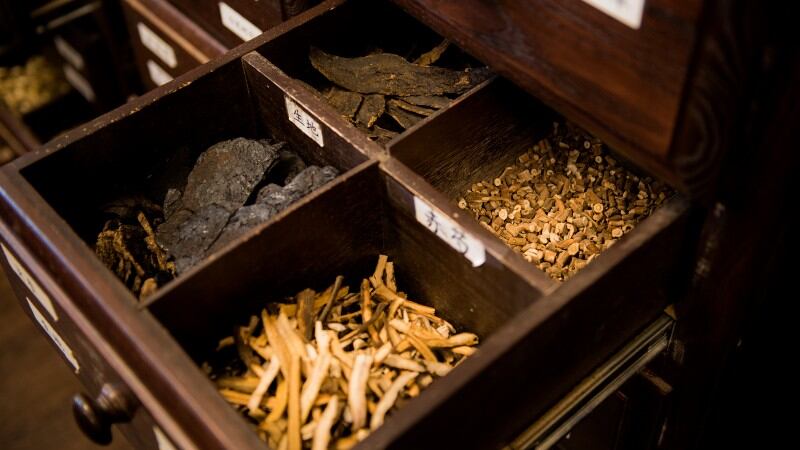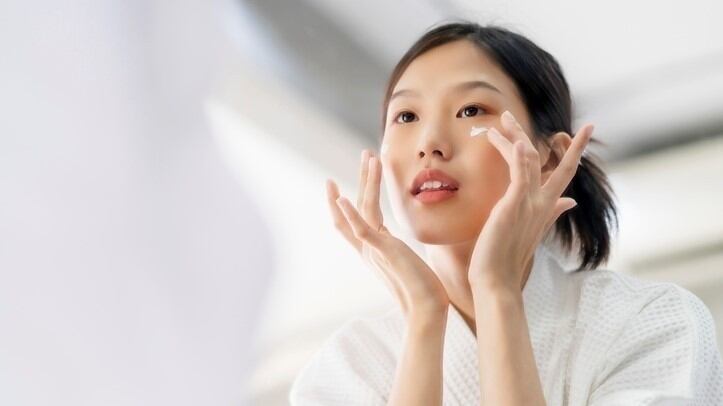Atopic dermatitis is a chronic inflammatory skin disease characterised by intense itching and recurrent eczema-like lesions. In developed countries, about 15% to 20% of children and 1% to 3% of adults are affected by the condition.
Previous studies have reported that Chinese herbal bath therapy is a safe and effective alternative treatment for atopic dermatitis, although there are no systematic reviews targeted at evaluating its efficacy in treating children with the skin disease.
To fill this gap, a meta-analysis of eight randomised controlled studies, which were published up to September 2022, was conducted.
Some 854 patients aged below 18 were included. Among them, 415 children in the trial group underwent Chinese herbal bath therapy for one to two times per day, each lasting for 10 to 15 minutes.
The remaining 439 in the control group used conventional topical treatment of applying tacrolimus ointment, hydrocortisone butyrate cream or fluticasone propionate cream once or twice a day.
Both groups were treated for two to four weeks.
Each prescription of the herbal bath contained between four and 14 types of Chinese herbal medicines, out of a total of 28. Specifically, nine types claimed to be effective in anti-inflammatory, another nine in regulating immunity, seven in relieving itch, and three in anti-allergy.
Findings from the meta-analysis indicated that the beneficial effects experienced by the trial group were significantly greater than that of the control group. The outcomes were measured by the cure rate, recurrence rate, SCORAD index (a clinical tool used to assess the extent and severity of eczema), and incidence of adverse reactions.
“Chinese herbal bath therapy is an important part of traditional Chinese medicine, and has a long history as a complementary and alternative therapy. It has the characteristics of hyperthermia therapy, which accelerates blood circulation by dilating capillaries, thereby promoting the penetration of drugs on the site of the lesions.
“The Chinese medicines in the herbal bath work synergistically through multiple pathways, acting on the immune response, skin barrier function, neuroendocrine-immune system, microbial flora, and more,” said the authors.
A potential boost to patient confidence
The onset of atopic dermatitis commonly takes place between three and six months of age. Approximately 60% of patients develop symptoms within their first year of life, and 90% by five years old.
Twenty percent of children whose onset occurred before the age of two typically have persistent symptoms that can adversely impact their development. Sleep disorders caused by recurrent episodes of atopic dermatitis can also impair the quality of daily life and lead to other psychosocial problems.
Currently, oral medications (such as antihistamines and immunosuppressants) and topical drugs (such as moisturisers and glucocorticoids) are the first line of treatment. However, due to severe side effects associated with long-term use of these drugs, medication compliance and patients’ confidence in treatment are usually low.
In recent years, Chinese herbal bath therapy is increasingly used as an adjunct treatment for children’s atopic dermatitis in China.
“The Chinese herbal solutions are absorbed by sweat glands, mucous membranes and capillaries to bring systemic therapeutic benefits. After being stimulated by these herbal liquids, nerve endings under the skin automatically regulate the functioning of nerves, body fluids and circulation, which in turn improves the body’s disease-resistance and repair ability,” the authors explained.
Although Chinese herbal bath therapy may significantly improve symptoms and reduce flare-ups, further research with rigorous design, large sample size, and placebo control or wait list control are needed to support the use of it as primary treatment.
Source: Medicine
https://doi.org/10.1097/MD.0000000000031923
“Chinese herbal bath therapy for the treatment of Atopic dermatitis in children: A meta-analysis and systematic review”
Authors: Guo Zheng, et al




